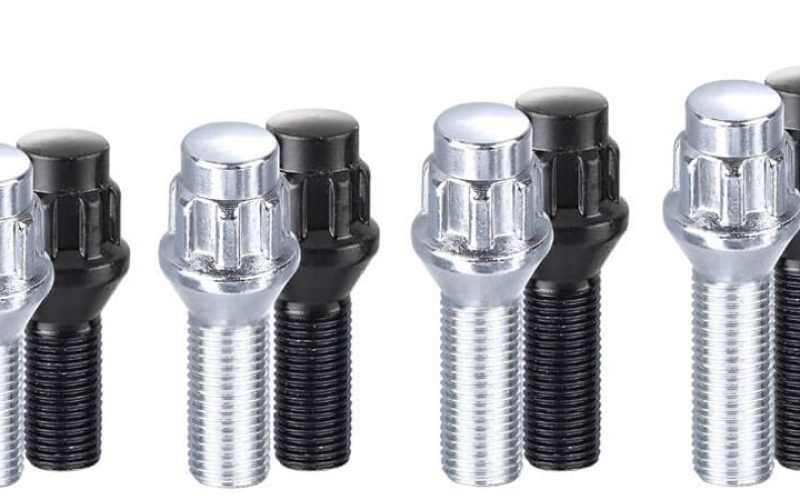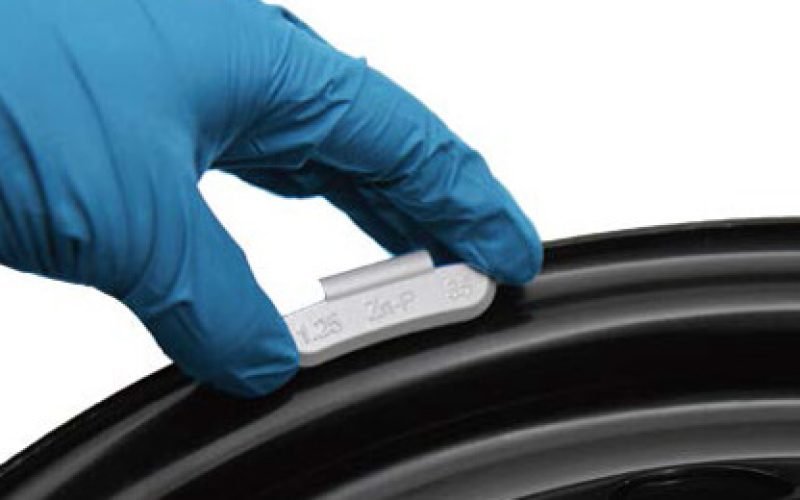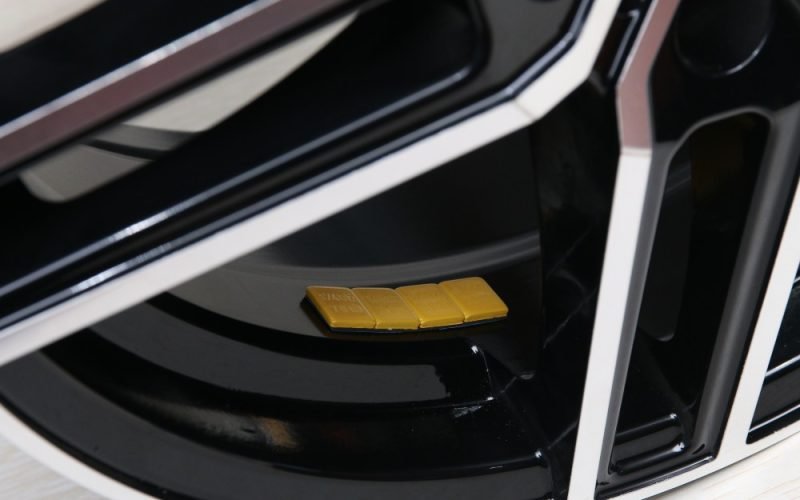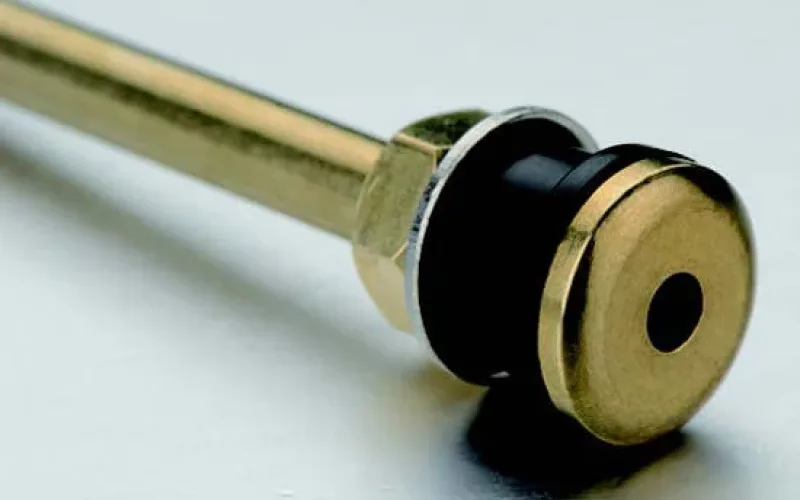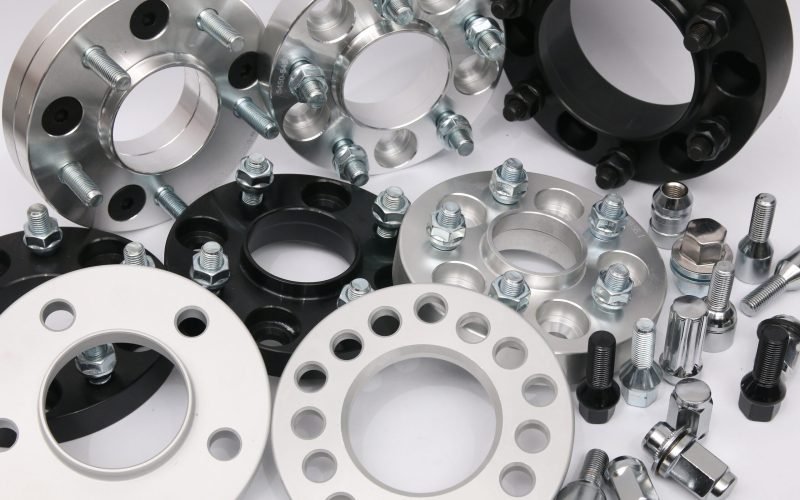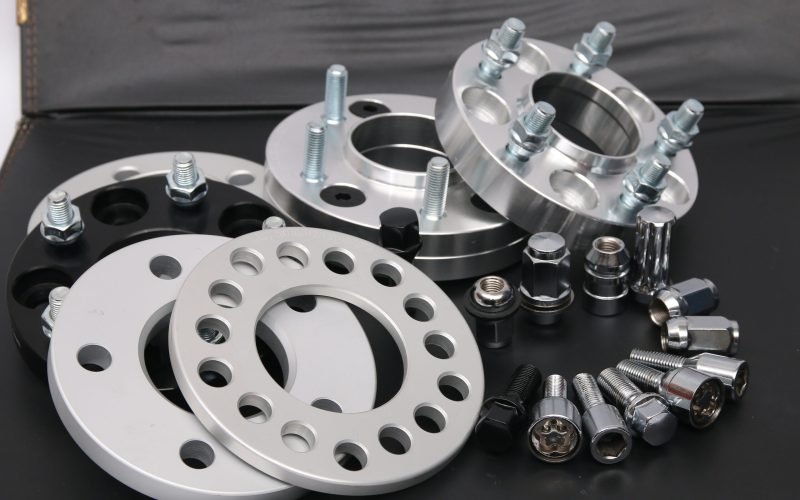

admin1
May 14, 2025
Exploring the Different Types of Clip Wheel Weights
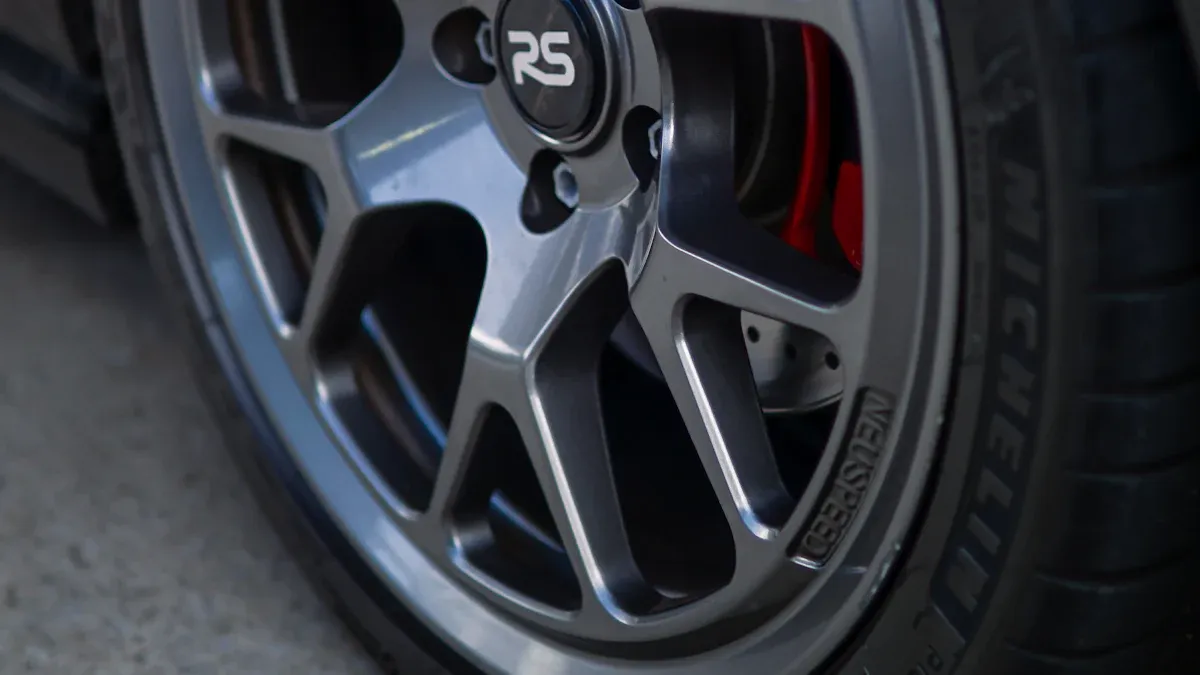
Clip-on wheel weights play a vital role in ensuring your vehicle’s wheels remain balanced. They attach directly to the wheel rim, counteracting any uneven weight distribution. Balanced wheels not only improve fuel efficiency by up to 10% but also enhance vehicle stability, making your ride smoother and safer.
These weights are essential for better performance, particularly at higher speeds where even weight distribution reduces vibrations and enhances handling. Their practical design allows for easy installation, minimizing downtime—especially valuable in commercial settings.
Fortune Auto Parts, a leading manufacturer of clip wheel weights, has been delivering top-quality products since 1996. With a commitment to innovation and quality, Fortune ensures you receive reliable solutions for your vehicle’s needs.
Different Types of Clip-On Weights
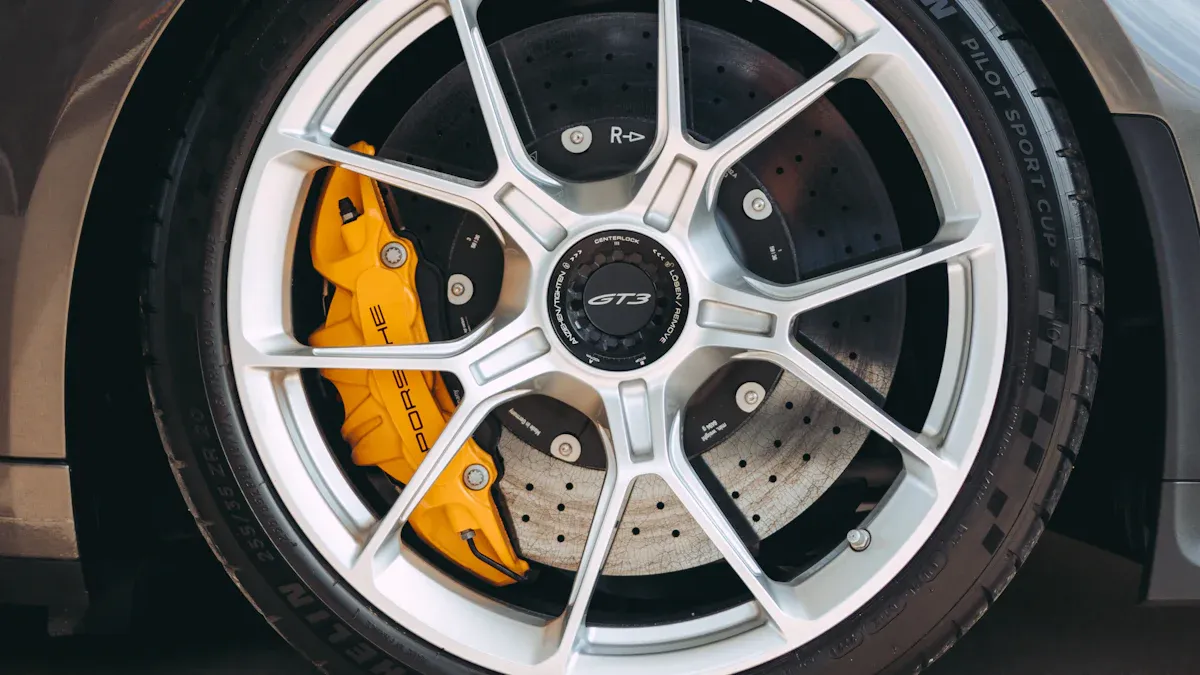
Zinc Clip-On Weights
Zinc clip-on weights are a popular choice for balancing wheels, but they come with certain limitations. These weights are less dense than lead, which means they require a larger volume to achieve the same weight. This can result in less effective weight distribution, especially for precise balancing needs. Additionally, zinc weights often fail to conform to the rim as effectively as lead weights, making them harder to secure properly.
“Zinc and iron tire weights suck for two reasons: 1. Not as dense, so the weight isn’t as concentrated in the spot that needs it (Weights are bigger for same weight). 2. They are too hard. Lead weights will conform to the rim better when hammered in place.”
Despite these drawbacks, zinc weights remain a viable option for those seeking an environmentally friendly alternative to lead. They are widely used on aluminum rims and are compatible with adhesive wheel weights for added versatility.
Steel Clip-On Weights
Steel clip-on weights offer durability and efficiency, making them a reliable choice for balancing applications. These weights resist corrosion, ensuring long-term performance even in harsh environments. Their design minimizes environmental impact, making them a sustainable option for modern vehicles.
| Feature | Description |
|---|---|
| Durability | Steel clip-on weights are durable. |
| Corrosion Resistance | They are resistant to corrosion. |
| Suitability for Balancing | Ideal for balancing applications. |
Steel weights are available in black and silver finishes, allowing you to match them to your vehicle’s aesthetic. They are cost-effective and easy to install, making them a preferred choice for many drivers. Whether you’re balancing steel rims or heavy-duty tractor wheels, steel clip-on weights deliver consistent results.
Lead Clip-On Weights
Lead clip-on weights have been the industry standard for decades due to their high density and excellent conformability. These weights distribute weight effectively, ensuring precise balancing for smoother rides. Their ability to conform to the rim when hammered in place makes them easier to secure compared to zinc weights.
However, lead weights face scrutiny due to their environmental impact. Studies highlight potential human and ecological exposure routes from lead releases during manufacturing, disposal, and use. Lead-free alternatives are gaining traction, offering comparable performance with reduced environmental risks.
| Evidence Type | Description |
|---|---|
| Bioavailability | Quantitative information on the relative and absolute bioavailability of lead from new and/or weatherized lead wheel weights. |
| Exposure Routes | Information on potential human and ecological exposure routes associated with lead releases from the manufacture, processing, disposal, and distribution of lead wheel weights. |
| Lead-Free Alternatives | Information on the current availability and suitability of lead-free wheel weights as alternatives, including comparisons in performance attributes. |
Despite these concerns, lead clip-on weights remain a trusted option for applications requiring high precision. Their durability and effectiveness make them a staple in the automotive industry.
Plastic or Composite Clip-On Weights
Plastic or composite clip-on weights represent a modern solution for wheel balancing. These weights are crafted from advanced materials, combining durability with lightweight properties. If you’re looking for an alternative to traditional metal weights, these offer unique advantages that cater to specific needs.
Key Features of Plastic or Composite Weights
- Lightweight Design: These weights reduce the overall load on your wheels, which can improve fuel efficiency.
- Corrosion Resistance: Unlike metal weights, plastic or composite materials resist rust and degradation, even in humid or salty environments.
- Non-Metallic Composition: Their non-metallic nature makes them ideal for applications where metal contact could cause damage or interference.
Tip: Plastic weights are perfect for vehicles exposed to harsh weather conditions or corrosive environments, such as coastal areas.
Benefits of Using Plastic or Composite Weights
Plastic clip-on weights offer several advantages that make them a practical choice for certain applications:
- Enhanced Aesthetic Appeal: Their sleek design blends seamlessly with modern rims, maintaining the visual integrity of your vehicle.
- Eco-Friendly Option: These weights are often made from recyclable materials, reducing environmental impact compared to lead or steel alternatives.
- Versatility: They work well with specialty rims, including those with unique finishes or coatings that could be scratched by metal weights.
Applications of Plastic or Composite Weights
Plastic weights are not just a niche product; they serve a variety of purposes:
- Luxury Vehicles: High-end cars often use plastic weights to preserve the pristine look of their rims.
- Specialty Rims: If your vehicle has custom or painted rims, plastic weights prevent damage during installation.
- Off-Road Vehicles: Their durability makes them suitable for vehicles that encounter rough terrains, where metal weights might corrode or loosen.
| Application | Why Choose Plastic Weights? |
|---|---|
| Luxury Vehicles | Protects rim aesthetics and prevents scratches. |
| Specialty Rims | Avoids damage to custom finishes or coatings. |
| Off-Road Vehicles | Resists corrosion and stays secure in tough conditions. |
Considerations When Choosing Plastic Weights
While plastic clip-on weights offer many benefits, you should evaluate their suitability for your specific needs. They may not provide the same level of density as metal weights, which could affect balancing precision for heavier vehicles.
Note: Always consult with a professional to ensure plastic weights meet your vehicle’s requirements.
Plastic or composite clip-on weights are a forward-thinking choice for drivers who value aesthetics, durability, and environmental responsibility. By understanding their features and applications, you can decide if they align with your vehicle’s needs.
Applications of Clip Wheel Weights
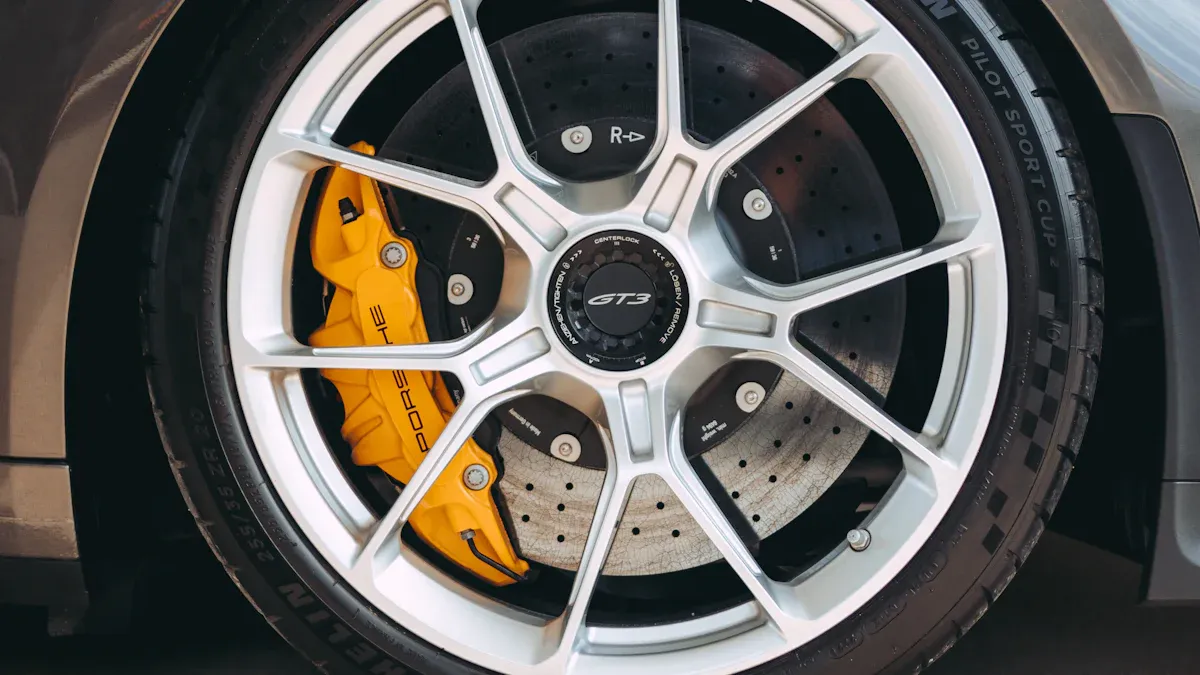
Aluminum Rims and Zinc Weights
Zinc weights are a practical choice for balancing aluminum rims. Their lightweight design complements the structure of aluminum rims, ensuring effective weight distribution without adding unnecessary bulk. You’ll find zinc weights particularly useful for vehicles that prioritize fuel efficiency and smooth handling.
One of the key advantages of zinc weights is their compatibility with aluminum rims. These rims often require a softer material to avoid damage during installation. Zinc weights conform well to the rim surface, reducing the risk of scratches or dents. This makes them ideal for preserving the aesthetic appeal of your vehicle while maintaining optimal performance.
Zinc weights also offer an environmentally friendly alternative to lead weights. Their non-toxic composition aligns with modern regulations, making them a responsible choice for drivers who value sustainability. Whether you’re balancing passenger vehicles or motorcycles, zinc weights provide reliable performance across various applications.
Tip: If you’re using steel rims, zinc weights for steel rims may not be the best option. Steel clip-on weights are better suited for those applications.
Steel Rims and Steel Weights
Steel clip-on weights are the go-to solution for balancing steel rims. Their durability and corrosion resistance make them a reliable choice for vehicles exposed to tough conditions. You’ll appreciate their ability to withstand wear and tear, ensuring long-term performance without frequent replacements.
Steel weights excel in heavy-duty applications, such as commercial vehicles and off-road trucks. Their robust design ensures precise weight distribution, which improves stability and reduces vibrations. This translates to smoother rides and better handling, even on uneven terrains.
| Vehicle Type | Segment Size | Growth Rate | Dominance in Market |
|---|---|---|---|
| Passenger Vehicles | Largest | Projected | High |
| Commercial Vehicles | Second | Projected | Moderate |
| Motorcycles | Smallest | Projected | Low |
Steel weights also come in various finishes, including black and silver, allowing you to match them to your vehicle’s aesthetic. Their cost-effectiveness and ease of installation make them a preferred choice for drivers seeking a balance between performance and affordability.
Tractor Wheel Weights for Heavy-Duty Use
Tractor wheel weights play a crucial role in heavy-duty applications. These weights ensure precise weight distribution, which improves traction and stability during operation. You’ll notice better adherence to the ground, especially in challenging terrains like farms or construction sites.
Balanced tractor wheels reduce rolling resistance, allowing smoother operation with less fuel consumption. This efficiency not only saves costs but also minimizes wear and tear on the tractor. Improper tractor balancing can lead to inefficiencies, such as excessive slip or strain on the machinery.
- Better overall efficiency
- Precise distribution of weight improves adherence and traction
- Ideal slip range: 3% to 9%
- Noticeable inefficiency above 15% slip
Tractor wheel weights also maximize operational performance by reducing strain on the tractor. You’ll experience improved traction and stability, which enhances productivity during heavy-duty tasks. These weights are designed to withstand tough conditions, ensuring reliability and durability over time.
Note: Tractor wheel weights are essential for maintaining the ideal slip range. Excessive slip can lead to inefficiencies and increased fuel consumption.
By using tractor wheel weights, you can optimize your tractor’s performance while reducing maintenance costs. Their heavy-duty design makes them indispensable for agricultural and industrial applications.
Specialty Applications with Plastic Weights
Plastic clip-on weights excel in specialty applications where traditional metal weights may fall short. Their unique properties make them a versatile choice for various vehicles and environments. If you’re looking for a solution tailored to specific needs, plastic weights offer several advantages.
Luxury and High-Performance Vehicles
Luxury and high-performance vehicles often feature custom or delicate rims. These rims require a balancing solution that won’t compromise their appearance. Plastic weights provide a non-abrasive option, ensuring your rims remain scratch-free during installation. Their lightweight design also complements the performance-focused nature of these vehicles.
Tip: Use plastic weights to maintain the pristine look of your luxury car while ensuring smooth handling and stability.
Electric Vehicles (EVs)
Electric vehicles benefit from the lightweight nature of plastic weights. Reducing the overall weight of the vehicle helps improve battery efficiency and extends driving range. Plastic weights also resist corrosion, making them ideal for EVs exposed to varying weather conditions.
| Feature | Benefit for EVs |
|---|---|
| Lightweight Design | Enhances battery efficiency |
| Corrosion Resistance | Protects against environmental damage |
| Eco-Friendly Composition | Aligns with the sustainability goals of EVs |
Off-Road and All-Terrain Vehicles
Off-road vehicles face harsh conditions, including mud, water, and rocky terrains. Plastic weights resist rust and corrosion, ensuring they remain secure and functional even in extreme environments. Their durability makes them a reliable choice for vehicles that frequently encounter tough terrains.
Note: Plastic weights are less likely to loosen or degrade in off-road conditions compared to metal alternatives.
Specialty Rims and Coated Wheels
If your vehicle has specialty rims or coated wheels, plastic weights are an excellent option. Metal weights can scratch or damage the coating, leading to costly repairs. Plastic weights eliminate this risk, preserving the integrity of your rims while providing effective balancing.
Marine and Coastal Applications
Vehicles operating in marine or coastal areas face constant exposure to saltwater and humidity. Metal weights often corrode in these conditions, reducing their lifespan. Plastic weights, on the other hand, resist saltwater corrosion, making them a durable choice for these environments.
Example: Boats with trailer wheels or vehicles frequently used near the coast benefit greatly from plastic weights due to their resistance to rust and degradation.
Custom and Specialty Vehicles
Custom vehicles, such as show cars or modified trucks, often require unique solutions for wheel balancing. Plastic weights offer a sleek and customizable option that blends seamlessly with the vehicle’s design. Their versatility ensures they meet the specific needs of custom builds.
Plastic clip-on weights cater to a wide range of specialty applications. Whether you drive a luxury car, an electric vehicle, or an off-road truck, these weights provide a practical and effective solution. By understanding their benefits and uses, you can make an informed decision that aligns with your vehicle’s requirements.
Benefits of Using Clip-On Weights
Enhanced Weight Distribution
Clip-on weights play a critical role in achieving proper weight distribution across your vehicle’s wheels. This balance ensures that your tires make uniform contact with the road, which directly impacts performance and safety. Uneven weight distribution can lead to vibrations, reduced traction, and increased fuel consumption. By using clip-on weights, you can address these issues effectively.
The importance of weight distribution is supported by physics principles and advanced measurement technologies like the Setaram TGA balance mechanism. These tools highlight the precision required for optimal tire performance. Regular balancing with clip-on weights not only enhances performance but also extends the life of your tires.
| Evidence Type | Details |
|---|---|
| Market Growth | The automotive aftermarket is projected to reach approximately USD 1 trillion by 2025. |
| Tire Replacement Statistics | Around 2 million tires are replaced annually in North America, requiring 3-4 ounces of weights. |
| Fuel Efficiency Impact | Misaligned tires can increase fuel consumption by up to 10%, highlighting the need for proper balancing. |
Tip: Proper weight distribution improves fuel efficiency, saving you money in the long run.
Improved Vehicle Stability and Handling
Balanced wheels significantly enhance your vehicle’s overall stability and handling. Clip-on weights ensure that your tires rotate evenly, reducing vibrations and improving traction. This results in smoother rides, better cornering, and shorter stopping distances. Whether you’re driving on highways or navigating sharp turns, balanced wheels provide a noticeable improvement in control.
Statistical data underscores the impact of clip-on weights on stability. For example, in scenarios involving payload addition, stopping distances increased by less than 10%, thanks to proper balancing. Even in challenging conditions, such as three-trailer combinations, vehicles maintained stability within highway lane widths.
| Vehicle Scenario | Stability Impact | Observations |
|---|---|---|
| Control Vehicle | Baseline | Used for comparison against other scenarios |
| Three-Trailer Combination | Increased off-tracking by 8–9 in. | Still within highway lane width |
| Payload Addition | Stopping distance increased <10% | Additional brakes compensated for weight |
By improving traction and maintaining overall stability, clip-on weights ensure safer and more predictable driving experiences.
Reduced Tire Wear and Maintenance Costs
Using clip-on weights can lead to significant cost savings by reducing tire wear. Imbalanced wheels cause uneven tread wear, which shortens tire lifespan and increases the frequency of replacements. Clip-on weights counteract these imbalances, allowing your tires to wear evenly and last longer.
Smoother vehicle operation is another benefit of balanced wheels. This reduces strain on suspension components, lowering maintenance costs over time. Enhanced tire longevity not only saves money but also contributes to a more sustainable driving experience.
- Clip-on weights counteract wheel imbalances.
- They improve traction and reduce rolling resistance.
- Enhanced tire longevity minimizes replacement frequency.
Note: Regular tire balancing with clip-on weights ensures optimal performance and reduces long-term expenses.
By addressing imbalances, clip-on weights help you achieve better fuel efficiency, smoother rides, and lower maintenance costs. This makes them an essential investment for any vehicle owner.
Durability in Tough Terrains
Clip-on wheel weights excel in tough terrains, making them a reliable choice for vehicles that face challenging conditions. Whether you drive on rocky trails, muddy paths, or icy roads, these weights are built to endure. Their robust design ensures they stay securely attached, even when your vehicle encounters heavy vibrations or bumpy surfaces.
You’ll find clip-on weights particularly useful if you frequently drive off-road or in harsh winter environments. Their dependable nature allows them to maintain a secure fit, ensuring your wheels remain balanced no matter the terrain. This reliability translates to smoother rides and better handling, even in the most demanding situations.
Why Clip-On Weights Are Ideal for Tough Terrains
- Designed to withstand challenging conditions, they perform well on rough roads.
- They resist loosening under heavy vibrations, ensuring consistent performance.
- Recommended for off-road enthusiasts and drivers in extreme weather conditions.
The durability of clip-on weights also reduces the need for frequent replacements. This saves you time and money while ensuring your vehicle operates at peak performance. Their ability to handle tough terrains makes them a practical investment for anyone who values reliability and efficiency.
Tip: If you often drive in rugged environments, consider using steel or plastic clip-on weights. These materials offer excellent resistance to wear and corrosion, ensuring long-lasting performance.
By choosing durable clip-on weights, you can confidently tackle any terrain while maintaining your vehicle’s stability and safety.
Considerations and Regulations for Clip-On Weights
Environmental Impact of Lead Weights
Lead weights have long been used for wheel balancing, but their environmental impact raises serious concerns. Lead is a toxic substance that harms wildlife and humans. The Centers for Disease Control states that no safe level of lead exposure exists, especially for children. Even minimal exposure can cause permanent cognitive impairments.
Lead weights also pose risks to aquatic environments. Corrosion releases lead particles into water systems, particularly in flexible bag weights where lead shot rubs together, creating lead dust. This contamination affects ecosystems and drinking water supplies. Many regions, including the European Union, have taken action. Lead weights banned in the EU reflect growing awareness of their dangers and the push for safer alternatives.
Tip: Consider switching to lead-free options like zinc or steel weights to reduce environmental harm while maintaining proper balance for your vehicle.
Compliance with Local and International Standards
Regulations governing clip-on weights vary by region, but they share a common goal: minimizing environmental and safety risks. California’s Senate Bill 334, for example, aims to reduce wheel assembly components by 30% by 2025. This legislation impacts the use of traditional clip-on weights, encouraging innovation in balancing technologies.
Internationally, the automotive industry has shifted toward sustainable practices. Advanced adhesive weights now represent 38% of the European wheel balancing market, particularly for electric vehicles. These alternatives offer aerodynamic benefits and align with stricter environmental standards.
Note: Staying informed about local regulations ensures compliance and helps you choose weights that meet both performance and legal requirements.
Choosing the Right Clip-On Weight for Your Vehicle
Selecting the right clip-on weight depends on your vehicle’s rim type and usage. Scanning devices analyze rim edge dimensions to suggest appropriate weights. These measurements are compared to stored data, ensuring precise compatibility.
Lightweight polymer composites with magnetic adhesion show 40% better weight distribution efficiency than traditional lead-based weights. Electric vehicles benefit from these advanced options, while commercial vehicles still rely on cost-effective steel weights. However, trials of hub-mounted electromagnetic balancers by Volvo Trucks indicate a shift in technology preferences for heavy-duty applications.
Tip: Evaluate your vehicle’s characteristics, including rim type and driving conditions, to find the most suitable clip-on weight. Proper balance improves performance and reduces wear.
Maintenance and Replacement Guidelines
Proper maintenance and timely replacement of clip-on wheel weights ensure your vehicle’s wheels remain balanced and perform optimally. Neglecting these steps can lead to uneven tire wear, reduced fuel efficiency, and compromised safety. Follow these guidelines to keep your wheel weights in top condition.
Inspect Regularly for Damage or Loosening
You should inspect your wheel weights during routine tire checks. Look for signs of corrosion, cracks, or loosening. Driving on rough terrains or through extreme weather conditions can cause weights to shift or detach. If you notice any issues, address them immediately to prevent further damage.
Tip: Perform a visual inspection every time you rotate or align your tires. This habit helps you catch problems early.
Replace Damaged or Missing Weights
Damaged or missing weights disrupt wheel balance, leading to vibrations and uneven tire wear. Replace them as soon as possible. Use weights compatible with your rim type and driving conditions. For example, steel weights work well for heavy-duty vehicles, while plastic weights suit specialty rims.
| Weight Type | When to Replace |
|---|---|
| Steel Weights | Corrosion or visible wear |
| Zinc Weights | Cracks or poor fit on the rim |
| Plastic Weights | Warping or detachment |
Clean the Rim Before Installation
Before installing new weights, clean the rim surface thoroughly. Dirt, grease, or rust can prevent weights from attaching securely. Use a mild cleaner and a soft cloth to prepare the surface.
Note: A clean rim ensures a stronger bond, reducing the risk of weights detaching during use.
Consult a Professional for Balancing
While you can inspect and clean your wheels, balancing requires specialized equipment. Visit a professional service center to ensure accurate weight placement. Proper balancing improves handling, reduces vibrations, and extends tire life.
By following these maintenance and replacement guidelines, you can maximize the performance and longevity of your clip-on wheel weights. Regular care keeps your vehicle running smoothly and safely.
Clip wheel weights offer versatile solutions for balancing wheels across various vehicle types. You’ve learned about zinc, steel, lead, and plastic weights, each tailored to specific applications. These weights improve stability, reduce tire wear, and enhance handling, making them essential for safe and efficient driving.
To choose the right clip wheel weights, consider your vehicle’s rim type and driving conditions. For aluminum rims, zinc weights work well. Steel weights suit heavy-duty vehicles, while plastic weights protect specialty rims. Always check local regulations to ensure compliance with environmental standards.
Regular maintenance keeps your clip wheel weights effective. Inspect them for damage and replace them when necessary. Fortune Auto Parts provides reliable options, ensuring your vehicle performs at its best.
FAQ
What are clip-on wheel weights used for?
Clip-on wheel weights balance your vehicle’s wheels. They correct uneven weight distribution, reducing vibrations and improving handling. Balanced wheels also extend tire life and enhance fuel efficiency. You’ll notice smoother rides and better stability, especially at higher speeds.
How do I choose the right clip-on weight for my vehicle?
Select weights based on your rim type and driving conditions. Zinc weights suit aluminum rims, steel weights work for heavy-duty vehicles, and plastic weights protect specialty rims. Consult a professional for precise compatibility and balancing.
Are lead clip-on weights still safe to use?
Lead weights are effective but pose environmental risks. Many regions have banned them due to toxicity. Safer alternatives like zinc, steel, and plastic weights offer comparable performance without harming ecosystems. Choose lead-free options to align with modern regulations.
How often should I inspect or replace clip-on weights?
Inspect weights during routine tire checks. Look for corrosion, cracks, or loosening. Replace damaged or missing weights immediately to maintain wheel balance. Regular inspections ensure optimal performance and prevent uneven tire wear.
Can clip-on weights handle tough terrains?
Yes, clip-on weights are designed for durability. Steel and plastic weights resist corrosion and stay secure on rough roads. They’re ideal for off-road vehicles and extreme weather conditions, ensuring consistent performance in challenging environments.
